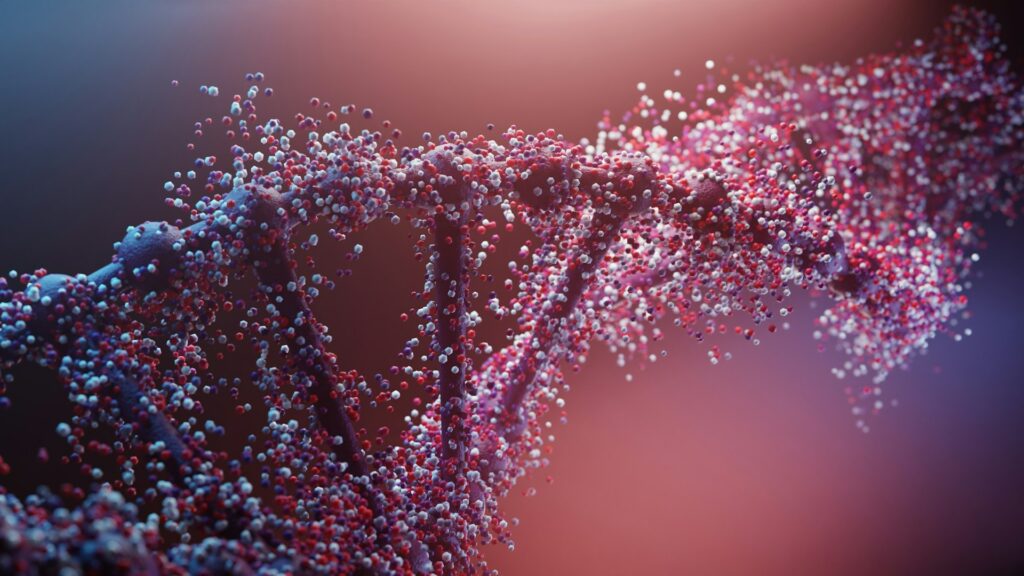Breakthroughs in Biotechnology: The Intersection of Artificial Intelligence Analysis and Gene Editing

Breakthroughs in Biotechnology: The Intersection of Artificial Intelligence Analysis and Gene Editing
The Combination of Artificial Intelligence and Biotechnology
In recent years, there has been significant advancement in the field of biotechnology, especially in gene editing tools like CRISPR. In the meanwhile, artificial intelligence (AI) has evolved into a strong instrument for the purpose of processing large data sets. The fields of research, healthcare, and agriculture are undergoing a significant transformation as a result of the combination of gene editing and artificial intelligence analysis. This combination offers unparalleled accuracy, efficiency, and predictive capacities.
Gene Editing: Precision at the DNA Level
DNA sequences may now be altered by researchers with an extremely high degree of precision thanks to gene editing tools. CRISPR and other systems that operate in a similar fashion have the ability to add, delete, or modify particular genes. This makes it possible to cure genetic abnormalities, enhance the resilience of crops, and even prevent the transmission of hereditary diseases. This accuracy brings up a variety of opportunities for individualized medication as well as improved biological research.
Ways in which Artificial Intelligence Improves Gene Editing
By examining intricate genomic information, forecasting possible results, and figuring out the best sites for editing, artificial intelligence (AI) speeds up the process of gene editing. It is possible for machine learning algorithms to predict gene interactions, evaluate the possibility of adverse consequences occurring in unintended targets, and provide suggestions for changes that would reduce the dangers. The combination of these elements minimizes the need for experimentation via trial and error, which results in the conservation of time and resources in both clinical and research settings.
Personalized Medicine and Therapies Designed for Specific Targets
Personalized medicine is one of the most promising uses of this technology. Artificial intelligence may assist in the development of precise medicines that are specifically designed for each patient by examining the genetic profile of each person. Following that, gene editing may be used to rectify genetic flaws or to improve the efficacy of treatments, which will result in treatments for illnesses such as cancer, uncommon genetic disorders, and immunological issues that are both safer and more effective.
Agriculture and the Security of the Food Supply
Gene editing that is led by artificial intelligence (AI) is being used in agriculture in order to produce crops that are more nutritious, more robust, and more sustainable. When it comes to growth, yield, and disease resistance, artificial intelligence models are able to estimate the impact that genetic modifications will have. On the other hand, gene editing is a process that effectively executes these changes. This combination assists in tackling the issues of food security on a global scale while simultaneously decreasing dependence on chemical inputs.
The Process of Drug Discovery and Development
The process of discovering new drugs is being revolutionized by the merger of artificial intelligence and gene editing. Artificial intelligence (AI) is capable of identifying genetic targets, modeling interactions between molecules, and making predictions on how tweaks to genes might potentially affect drug responses. This accelerates the process of developing novel therapeutics and lowers the expenses and time commitment that are necessary to introduce pharmaceuticals to the market.
Ethical Considerations and Regulations
The more the authority one has, the greater the responsibility one must shoulder. The capacity to modify genes brings up ethical concerns in relation to human enhancement, ecological consequences, and the privacy of genetic information. In order to guarantee that gene editing and artificial intelligence (AI) applications are safe, ethical, and transparent, regulatory frameworks are continuing to evolve, striking a balance between innovation and public responsibility.
Difficulties Encountered During the Implementation Process
Challenges exist despite advancements in the field:
- Guaranteeing precision and reducing the number of gene modifications that are performed on the wrong site
- Effectively handling huge quantities of genetic data
- Combining experimental validation with forecasts made by artificial intelligence
- Taking care of the problems that the public has while still preserving confidence in biotechnology
Future Prospects
It is anticipated that the merging of artificial intelligence (AI) with gene editing would become a common instrument in the fields of healthcare, agriculture, and research by the year 2030. Breakthroughs that were unfathomable in the past will be possible in the future, thanks to advancements in predictive modeling, real-time genomic analysis, and automated gene editing. Quicker treatments, more intelligent crops, and a greater understanding of biological processes are all guaranteed by these technologies.
The convergence of artificial intelligence analysis with gene editing signifies a significant change in the field of biotechnology. This confluence is revolutionizing the medical field, agriculture, and research by making possible treatments at the genetic level that are precise and based on data. There is still work to be done to overcome the existing ethical and technological difficulties, but the potential advantages for human health, food security, and scientific discovery are enormous, signaling the beginning of a new era of innovation.







